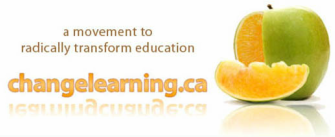Read more
|
For over 30 years, Carol Dweck has studied students’ motivation in order to find out what makes motivated students tick and she says: “Here is the most important thing I have learned: The most motivated and resilient students are not the ones who think they have a lot of fixed or innate intelligence. Instead, the most motivated and resilient students are the ones who believe that their abilities can be developed through their effort and learning”.
Read more
0 Comments
Tell Them From Me is an assessment system that measures a wide variety of indicators of student engagement and wellness, and classroom and school climate that are known to affect learning outcomes. The anonymous survey covers areas including: perceptions of testing, involvement in sports teams and clubs, attendance, hours spent watching TV, a sense of belonging, post-graduation goals, bullying, self esteem, student anxiety and depression.
Read more A leading expert in motivation and personality psychology, Carol Dweck has discovered in more than twenty years of research that our mindset is not a minor personality quirk: it creates our whole mental world. It explains how we become optimistic or pessimistic. It shapes our goals, our attitude toward work and relationships, and how we raise our kids, ultimately predicting whether or not we will fulfill our potential. Dweck has found that everyone has one of two basic mindsets.
Read more Young children don’t need to be rewarded to learn… the desire to learn is natural. …And as nearly every parent of a preschooler or kindergartner will attest, they play with words and numbers and ideas, asking questions ceaselessly, with as truly intrinsic a motivation as can be imagined. As children progress through elementary school, though, their approach to learning becomes increasingly extrinsic. – Alfie Kohn
Read more Punished By Rewards: The Trouble with Gold Stars, Incentive Plans, A's, Praise, and Other Bribes4/7/2008 In this groundbreaking book, Alfie Kohn shows that while manipulating people with incentives seems to work in the short run, it is a strategy that ultimately fails and even does lasting harm. Our workplaces and classrooms will continue to decline, he argues, until we begin to question our reliance on a theory of motivation derived from laboratory animals.Drawing from hundreds of studies, Kohn demonstrates that people actually do inferior work when they are enticed with money, grades, or other incentives. Programs that use rewards to change people’s behavior are similarly ineffective over the long run. Promising goodies to children for good behavior can never produce anything more than temporary obedience. In fact, the more we use artificial inducements to motivate people, the more they lose interest in what we’re bribing them to do. Rewards turn play into work, and work into drudgery.
Read more ….In studying resilience-related themes.. I found was that opportunities to take chances, take responsibility for others and for yourself, were things that predict positive outcomes for kids growing up under very difficult circumstances. Yet I began to see the very same things that we know help kids get through tough situations, were actually being _denied_ kids who were in very, very good living situations, in very, very safe environments at home and in the community. Michael Ungar, Author of Too Safe For Their Own Good
It costs Canada $2.5 billion every year for remedial education because of delayed interventions or negative early experiences Child Care Education Foundation
If the first few years of life include support for growth in cognition, language, motor skills, adaptive skills and social-emotional functioning, the child is more likely to succeed in school and later contribute to society. Martha Erickson and Karen Kurz-Riemer, authors of
Infants, Toddlers and Families: A Framework for Intervention |
Categories
All
Archives
August 2015
|

 RSS Feed
RSS Feed
